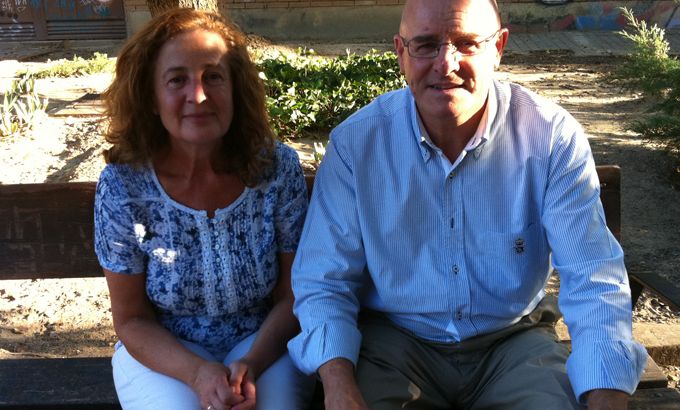Madrid bombing survivors ‘unable to forget’
Neighbours recall horror of 2004 Spain bombing as world remembers September 11, 2001, al-Qaeda attacks.

On an ordinary Thursday morning in the Spanish capital in March 2004, Angeles Dominguez experienced a miracle.
“I was on the train and on these trains there are seats parallel to the aisle and others perpendicular in groups of four seats. On that day, I sat with three others facing Atocha [train station]. There was a lady here, and two other people there. All of them died. I ended up on that lady’s seat. It’s a lottery.”
The “milagro” she describes – or miracle – was her own survival.
Ten bombs tore through four commuter trains during the morning rush hour. Dominguez was on her way to work. She suffered seven broken ribs and retains only 40 per cent of her hearing.
Eloy Moran lives across the street from Dominguez.
For years the pair would meet up in the morning and walk to the bus stop, then take the same train to work in central Madrid. Both creatures of habit, Angeles would sit in the fifth carriage, and Eloy the sixth, convenient for their different exit routes at Atocha station.
On that day, separate bombs exploded in both carriages. Four bombs in all blew up on Dominguez’s and Moran’s train.
Moran lost the sight in his left eye and the hearing in his left ear.
“My life changed entirely. In my biography, you could say, there was a before and an after that day. Before I used to work. Since that day I have not been able to work again.”
“The change comes about almost without you noticing, in a slow way. Well, sometimes slow and sometimes brisk. Like night to morning, depending on the day.”
Al-Qaeda threat
And, like night to morning, the world’s understanding of the al-Qaeda threat changed as well. For two-and-a-half years since the 9/11 attacks in the United States there had been no further successful attacks. The war in Afghanistan had displaced Taliban rule, disrupting al-Qaeda’s safe haven. Many experts believed the network had been significantly weakened, the threat largely neutralised.
Madrid proved them wrong.
Worse, it showed that western Europe was now a target, in particular those nations that supported the Bush-Blair-led coalition that invaded Iraq.
Among the 18 people convicted for the Madrid bombings were Spaniards, and Moroccans living anonymous lives in Spain. So, worse still, Madrid demonstrated the threat from within, from homegrown cells, driven by al-Qaeda-inspired ideology. These cells could exist anywhere, independent of any central command, ready to launch attacks at any time.
As indeed they did a year later in London.
Madrid meant the so-called “War on Terror” might have been more aptly titled the “War without End”. The enemy was unremarkable, faceless, living inside society.
Madrid took racial profiling to new heights. Security co-operation within Europe, and between Europe and the United States, increased. Remember extraordinary rendition? It became possible, with the complicity of multiple states and official agencies, following the shock of Madrid.
Unable to forget
Of course, the evolving global picture of “terror” meant little to the victims of the Madrid bombings. Yet the number of global victims – in Afghanistan, Iraq, Guantanamo Bay, London – grew exponentially. Not only the thousands of dead, but the hundreds of thousands, perhaps millions, of injured, bereaved, wrongly imprisoned or tortured, the emotionally scarred and psychologically disturbed around the world.
People who, like Moran and Dominguez, might learn to be positive but will never fully recover or be able to forget.
“I think you need to learn to live with the scars,” says Dominguez. “In my case, I had amnesia for half an hour. Human nature is very intelligent. Perhaps I saw things that one shouldn’t be able to recall.”
“But during the days I spent in hospital, I realised the bombings make you grow as a person. Firstly, because you don’t know your value and strength until you are pushed to the limit. That’s when a hidden part of you comes out. So I believe the vast majority of the victims in some way or another grow as people.”
Moran recalls: “Of all the people around me, not one of them survived.”
“I had escaped by the skin of my teeth. It really was a miracle. Then I started to feel guilty, a great sadness and guilt washed over me. I kept asking myself, why had I survived and those around me – who hadn’t done anything either – had not?
“Time is a formidable medicine,” he says. “It cures almost everything. But we don’t know how many doses of this medicine we need. And also there will be one person who needs one dose and another who needs more.
“But, well, I continue to conquer it.”